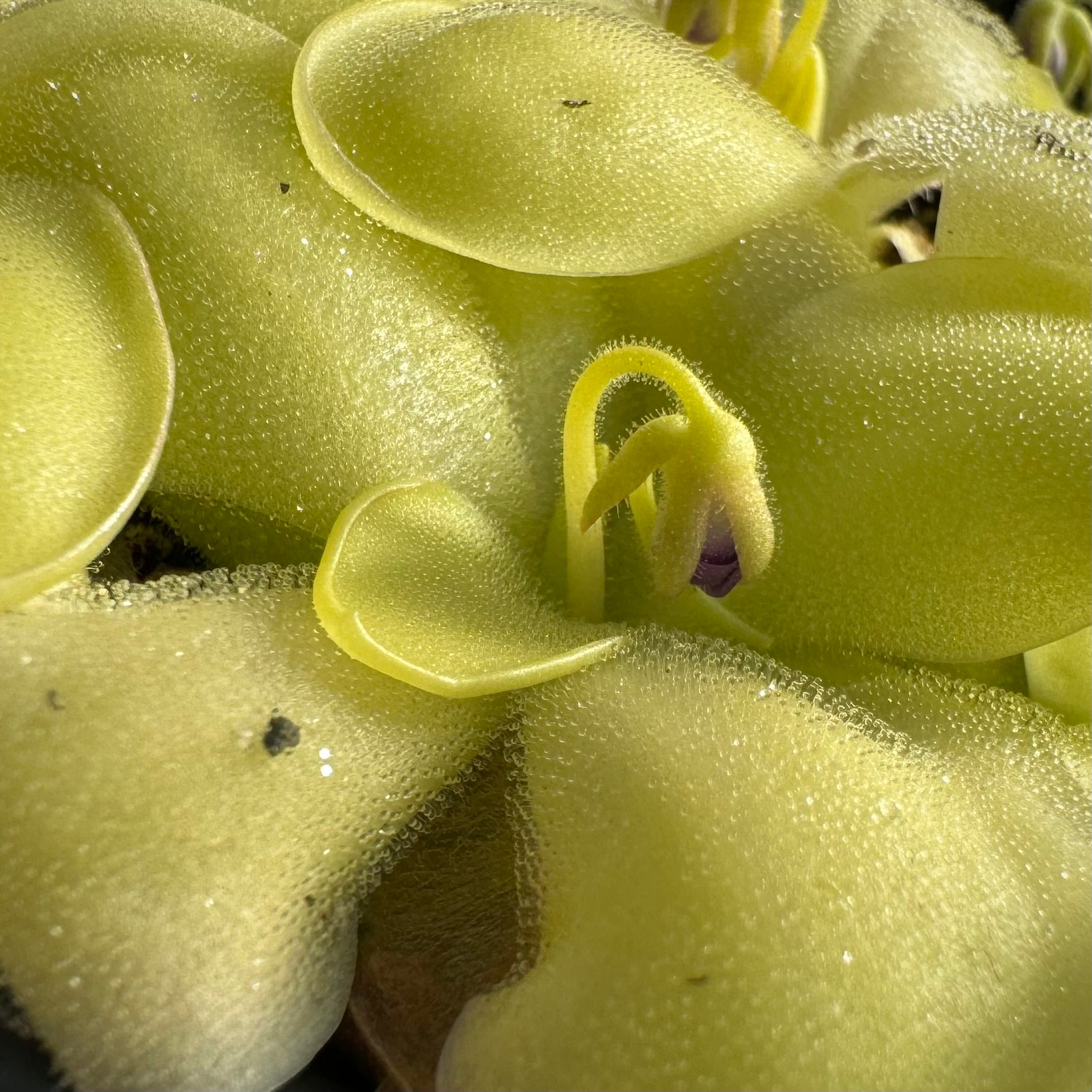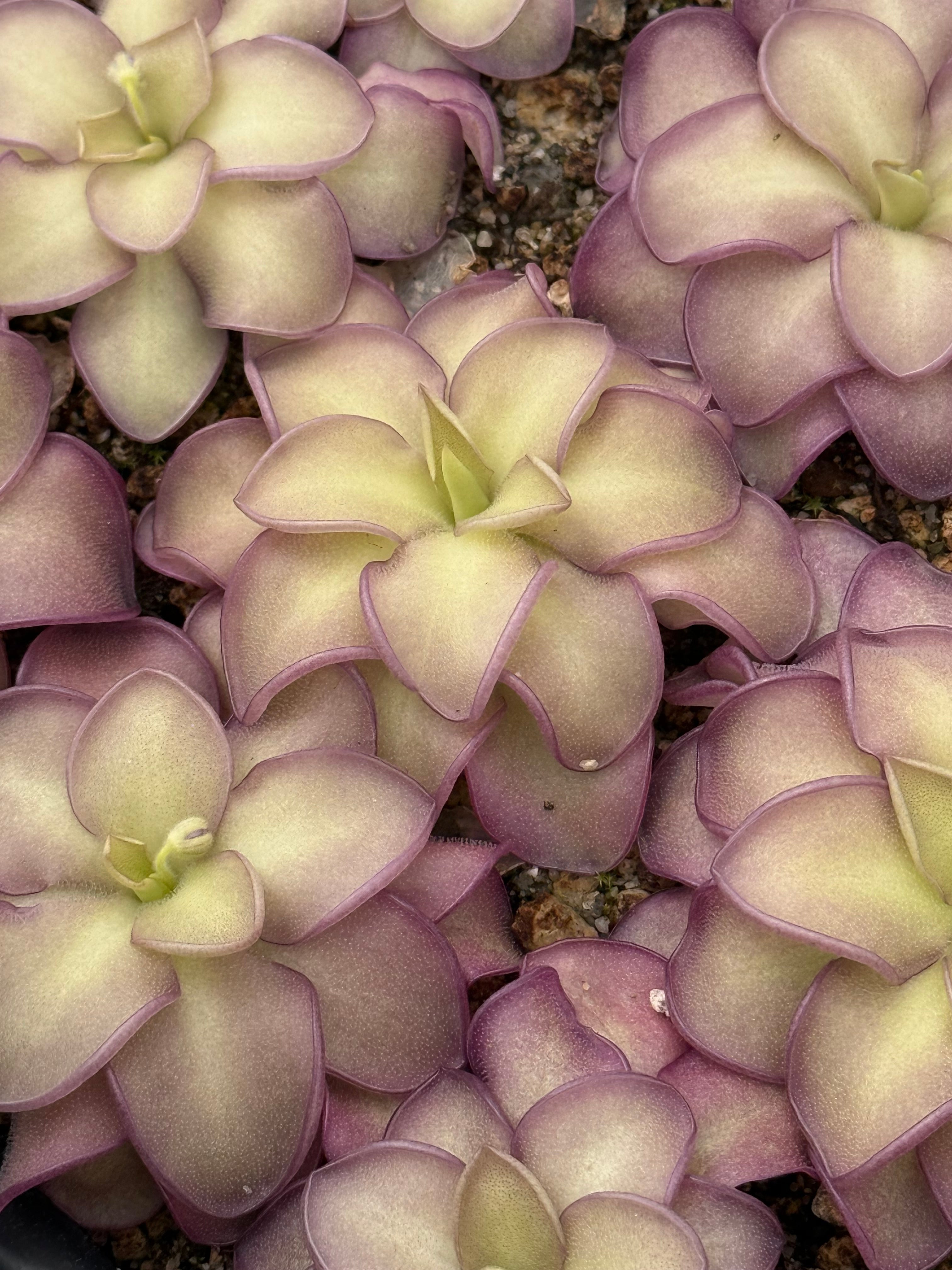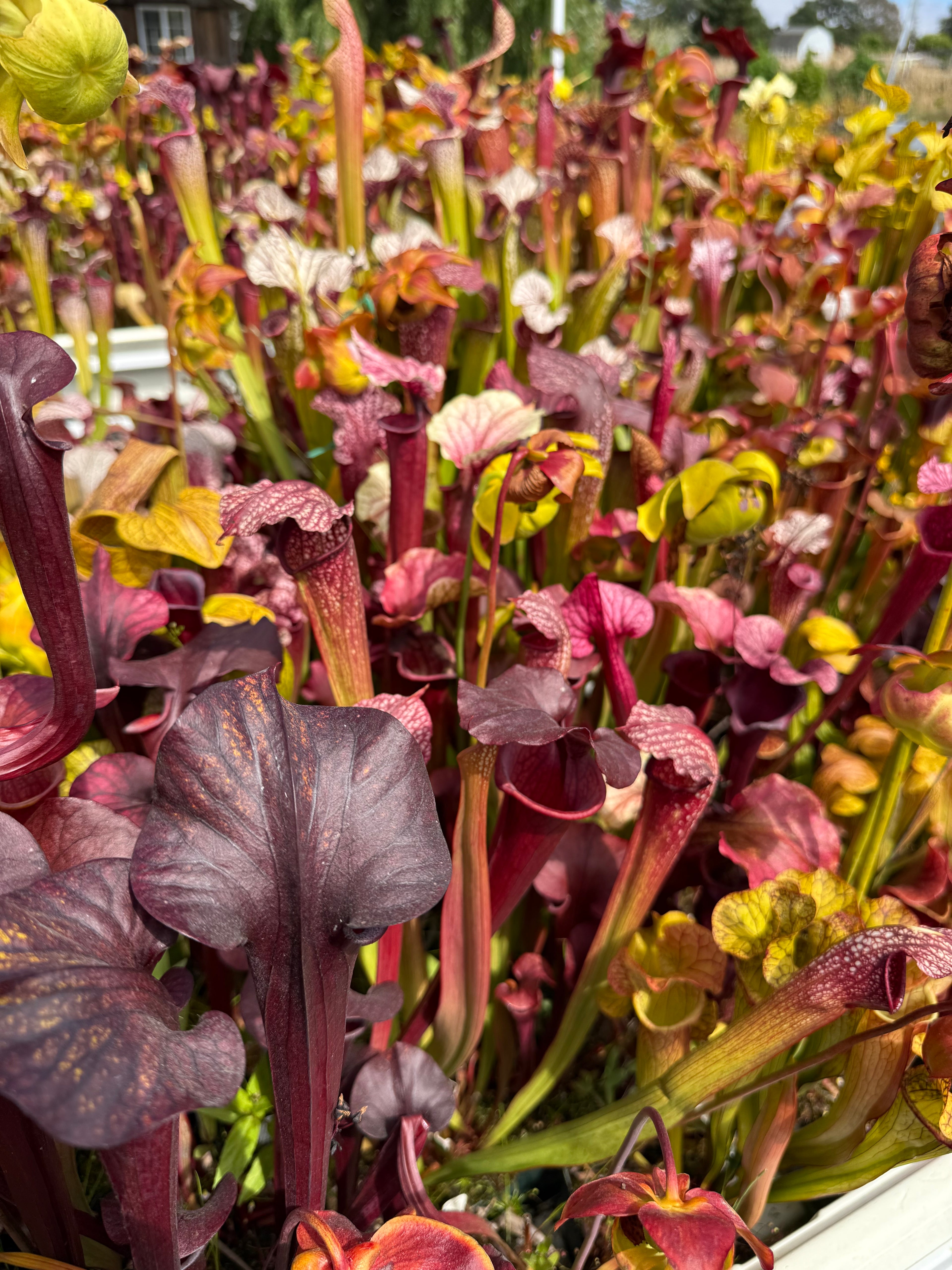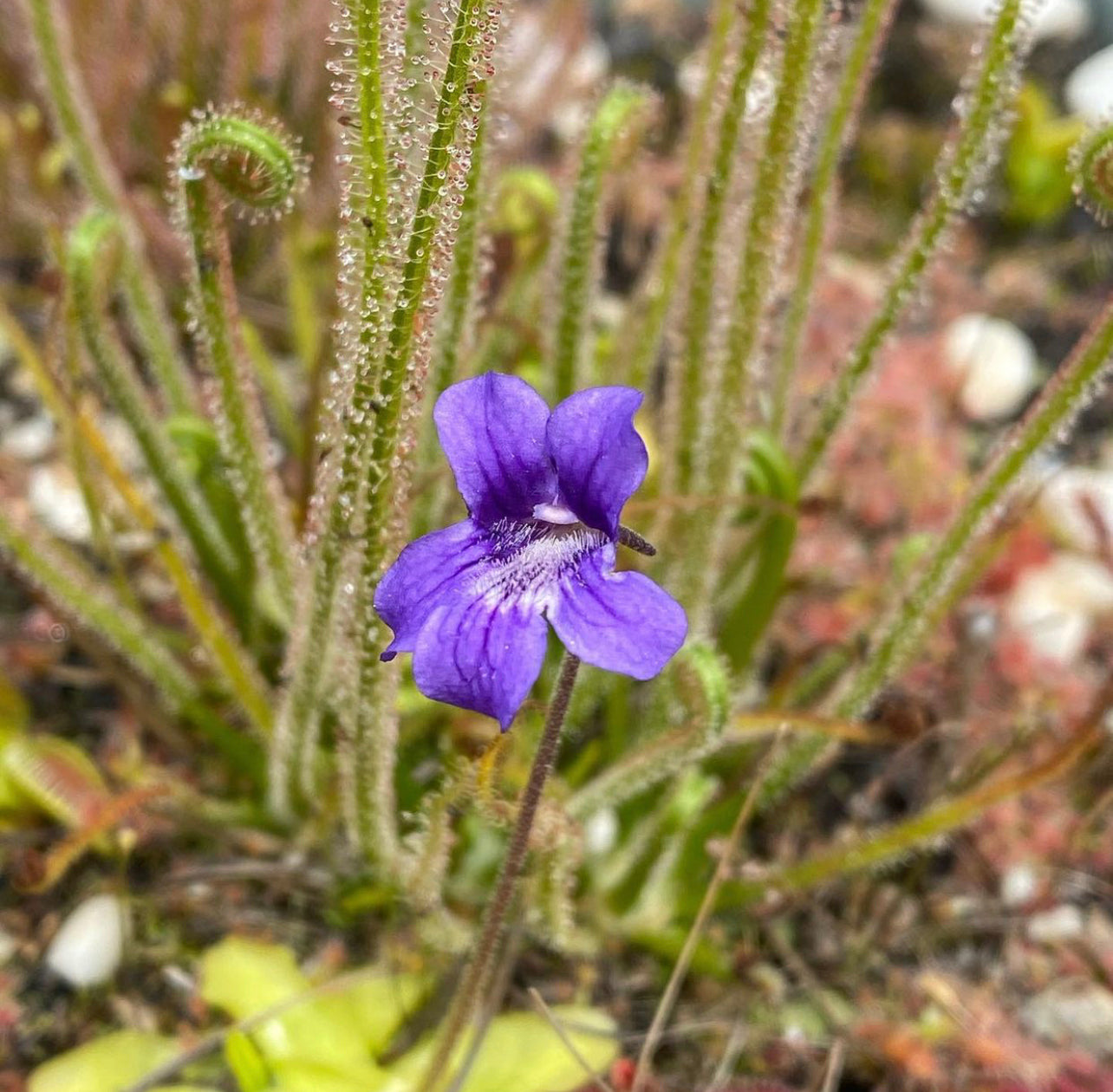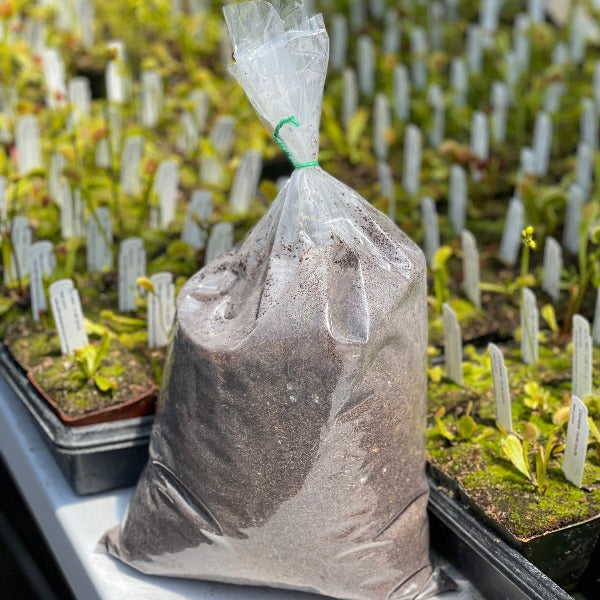Charles Darwin called the Venus flytrap “the most wonderful plant in the world”. Its Latin name Dionaea muscipula partly commemorates Venus, the goddess of beauty. It is native only to the grassy wetlands within a 100-mile radius of Cape Fear, North Carolina. The climate is warm and humid in summer, and chilly to frosty in the winter with occasional snowfall. While once abundant, the flytrap is now severely threatened due to the drainage and destruction of wet savannas for agriculture, home sites and shopping centers. Less than 5% of the plants survive!
Venus Flytraps are temperate plants and in autumn, the plant gets smaller as it prepares for winter dormancy. Dormancy lasts from October to February and the plant will stop actively growing and die back to the roots. It will start to grow vigorously in the spring. For more information check out our Venus flytrap growing tips.


